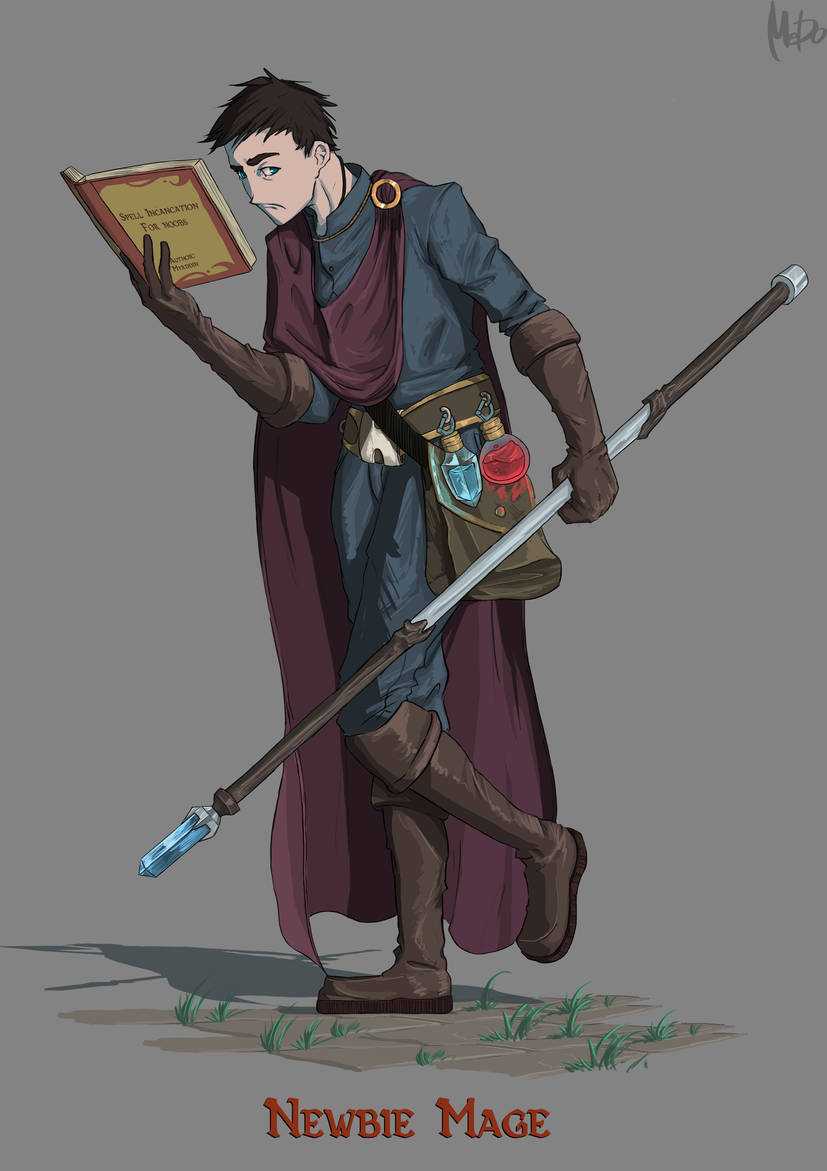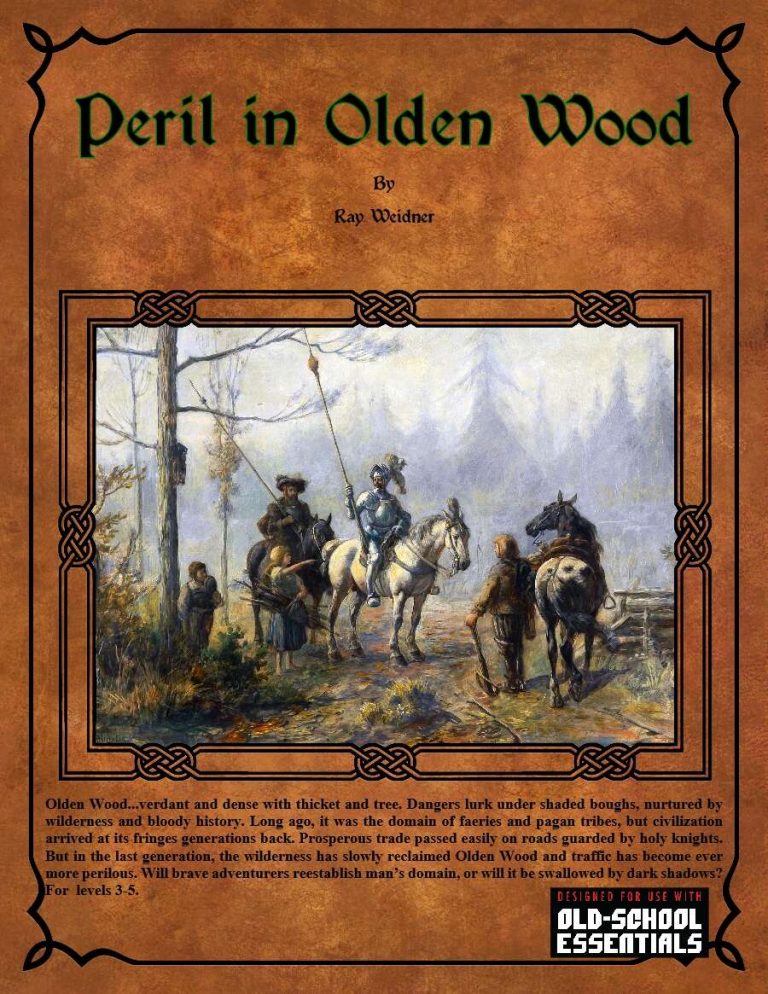And just who is this handsome fella?
So yeah, my new adventure is well-underway, and has been for a while. The contest entry was submitted, and based on the reviews that have been trickling from Prince of Nothing's blog (https://princeofnothingblogs.wordpress.com/), I'm not going to win this battle. There are just too many strong contenders.
But! I fully plan to win the war, since the commercial release of my contest entry (Death-Maze of the Sorcerer Kings...most badass title ever) expands upon its origin in every way possible. To quantify this: Death-Maze clocks in at around 75 pages, but its successor is currently 199 pages long. Those extra pages are chock full of additional plot elements, adversaries, color, new magic items and spells, etc.
For instance, both adventures present encounter tables for each district in the city. Here's the encounter table for Death-Maze in the Argentine District, the upper class quarter:
Not bad, but...
Here's the equivalent encounter table for the same district in the upcoming adventure:
Now THAT'S the stuff!
You see what I'm talking about? Not just bigger, but more gameable content that makes the urban setting come more alive. Even mundane encounters give you something to riff on.
Even though I have the rough draft of the entire adventure, there's still a lot to do. In addition to playtesting, editing, layout and art, I have to work with my publisher to run the Kickstarter campaign for this behemoth. I'm looking forward to its release later this year. And as for that art, I've hunted down an elite gang of old-school fantasy artists, and I've already been receiving drafts of some of the pieces I've outlined. How do these sound?
The Tratti family (father, daughter and two dueling sons) holding court in their fig orchard.
Sleazy business in the Goblin Market; cramped muddy stalls, pickpockets, arguing patrons, one-eyed man hawking potions, shady hooded figure peeking from a tent.
Exotic courtesans in the House of the Pearl Moon, serving goblets and pipes to fat drunk patrons.
Sneering efreeti floating among the hanging cages of saints.
The satyr looking down on the scene in the Infinite Amphitheater with a vicious grin.
Whimsical vampire preaching to a congregation of rats amidst the ruins under full moon.
A thief-taker sitting amongst tattooed thugs in a wine shop, watching to see who enters.
The spectacle of nightlife at the Battle Pits: gambling, dogfights, prostitution, singing, brawling.
Naked beastfolk cultists worshiping while their priest tattoos a human.
A languid bejeweled grandee reclining in a palanquin borne by slaves.
Dryads dancing around a fruit tree upon a hill that bears many different types of fruit.
A beholder with eyebeams shooting everywhere, defended by hideous gargoyles.
Penitent tired-looking knight in scuffed armor praying with his gleaming sword within a cramped shrine crowded with candles.
Outraged priest with exposed lizard features under torn skin on face pointing at the viewer, as several cowled cultist advance with sparking wands.
I can't even describe how cool #6 is shaping up to be!
The aforementioned playtest is going swimmingly, although we're only two sessions in. Two sessions out of...? This is a hefty adventure and we've just gotten started. It could take a while. But the players seem to be getting a kick out of it, so I wouldn't exactly call it "work."
Here's the intro:
A letter arrives in the hands of a perfumed courier:
“Greetings, Heroes of the Age,” begins the letter. “Plunderers of Lost Hoards, Unveilers of Ancient Secrets, Explorers of the Trackless Wild. I, peerless Sorcerer King Kypan of the Great Empire of Narzid, hereby offer my sponsorship in The Contest of Selection!
“No doubt you have heard how the wise and mighty Sorcerer Kings of Narzid choose our Overlord every twelve years. The prior Overlord, suzerain of suzerains, constructs an edifice for the ages; a puzzle, a peril and a monument to danger: the Death-Maze!
“There is only one way to claim the Fell Crown of the Overlord: to sponsor a team of heroic adventurers, and for them to exit the Death-Maze before any others. Only the most daring, clever and indomitable earn this right, and upon you I wish to bestow the great honor. I extend my royal hand, and bid you to represent me in the Death-Maze. Will you accept?”
His Infernal Majesty, Sorcerer King Kypan
You look up from the golden seal of Kypan. His emissary stands before you in a coal-black ermine cape, his face as impassive and patient as a mountain; he bears a ribboned scroll and waits. What say you, bold adventurers? Will you brave the greatest challenge of this age?
There's more to it than this. After a day of preparation, a delegation from the Church of the Truth Faith arrives, beseeching the party for aid: the Wand of Orcus has been stolen from their secret vaults and spirited away to Eren-Krarth, the capital of the Narzid Empire, and the Holy God-Talkers prophesized that the PCs were their best chance.
So yeah, there's a lot going on: a "gameshow" dungeon, plus an urban mystery. The city of Eren-Krarth is full of colorful encounters and perils that will test high-level adventurers to their utmost.
Oh, and what's it called? I'm going to hold on to that for now. First of all, the title is still a placeholder, although it may stick. And second of all, it's a bit of a spoiler for the central mystery!
That's all for now. Updates to follow at a highly-irregular schedule.





















